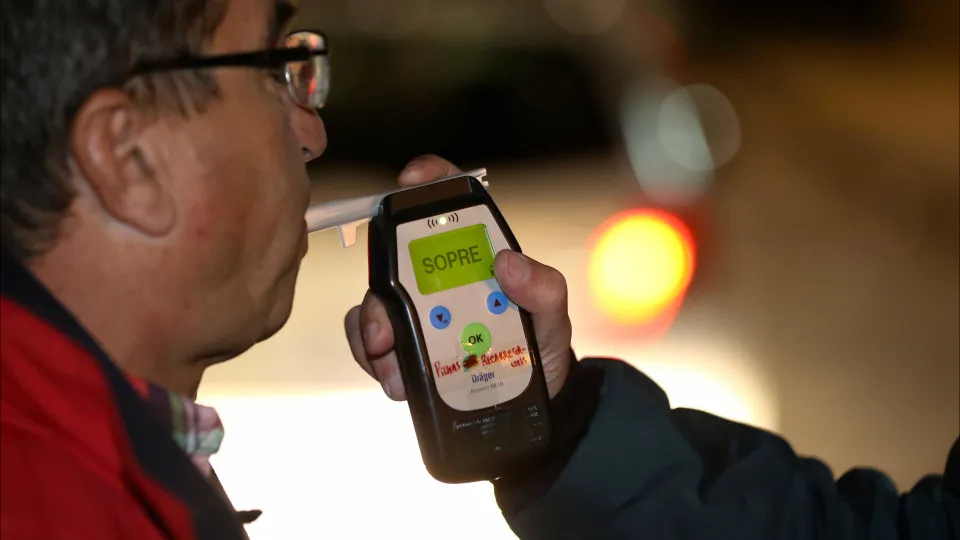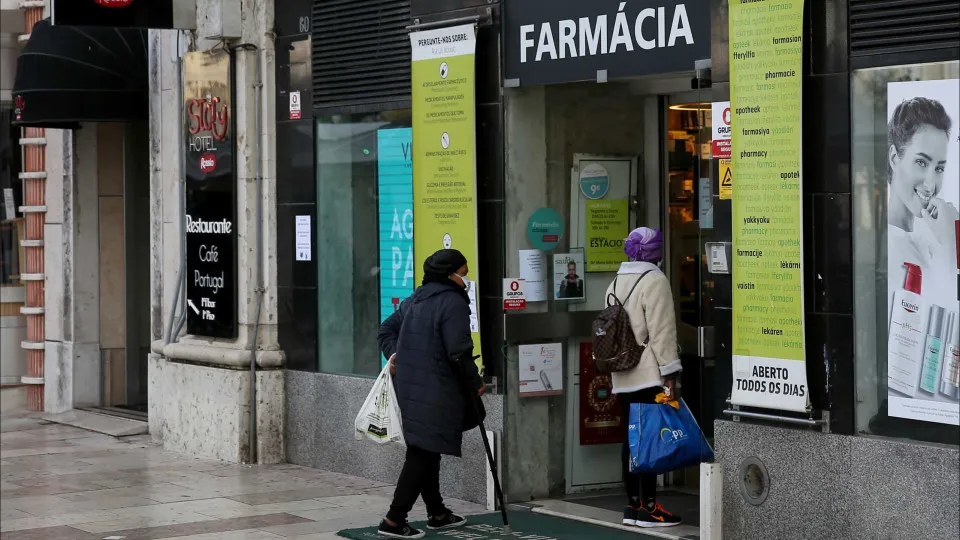
Since the Carnation Revolution on April 25, 1974, Portugal has held 18 general elections, including the Constituent Assembly election in 1975. In these elections, left-wing parties have secured a majority of votes 12 times, while right-wing parties reached a majority six times. The Socialist Party (PS) formed the government on 10 of the 12 occasions when left-wing parties led, whereas the Social Democratic Party (PSD) managed to govern eight times, two of which with a contrary majority: during the first Democratic Alliance (AD) government in 1979 and the first victory of Cavaco Silva in 1985.
The right-wing block achieved one of its strongest results in the legislative elections of 2024, especially when including votes from the far-right populist party Chega. Combined, these parties received 51.8% of the votes, securing 138 deputies, a tally only surpassed during the absolute majorities achieved by Cavaco Silva’s PSD in 1987 (54.6% and 152 deputies) and 1991 (56.7% and 141 deputies), although the number of parliamentary seats was reduced from 250 to 230 starting in 1991.
In the 2024 elections, PSD leader Luís Montenegro was appointed Prime Minister as the left recorded a combined total of 38.7% and 91 deputies, marking the second lowest result since the April 25 events, trailing only the 1991 performance where they obtained 37.9% and 89 out of 230 parliamentary seats.
The lowest percentage recorded by left-wing parliamentary parties was in the 1991 elections, which granted Cavaco Silva’s PSD a second absolute majority and saw General Ramalho Eanes’ PRD disappear from the Assembly after gaining 18% in 1985.
The right-wing parties faced their worst outcome in the 1975 Constituent Assembly elections, securing 34%. Their greatest setback in legislative elections occurred in 2019, when PPD-PSD, CDS-PP, Chega, and IL combined for 34.6% and 86 deputies. Under Rui Rio, the PSD secured 27.8%, while Assunção Cristas’ CDS-PP received 4.2%, and both André Ventura’s Chega and Carlos Guimarães Pinto’s IL garnered 1.3% each.
António Costa’s PS emerged victorious in the 2019 elections with 36.3%, continuing governance with parliamentary support from PCP and PEV (6.3% and 12 deputies), though without BE (9.5% and 19 deputies). In this election, Rui Tavares’ Livre secured 1.1% and one deputy.
The left’s major electoral disappointment, with 37.9%, occurred in 1991, when Cavaco Silva’s PSD attained its second absolute majority with 50.6% and 135 deputies. In this election, right-wing parties, including Manuel Sérgio’s PSN, achieved 56.7% and 141 deputies. Jorge Sampaio led PS, later becoming President for a decade; the PCP-PEV coalition was led by the historic communist leader Álvaro Cunhal, while Francisco Louçã led the PSR, achieving 1.1% but electing no deputies.
The arithmetic sum of results from left and right-wing parties gained significant relevance when António Costa’s PS, after losing the 2015 elections, broke with tradition by forming a government supported by BE, PCP, and PEV, resulting in a governing solution commonly referred to as “Geringonça”.
On the right, there have been fewer obstacles to coalition formation since 1979, when Sá Carneiro’s PPD joined forces with Diogo Freitas do Amaral’s CDS and Gonçalo Ribeiro Telles’ PPM to form the Democratic Alliance (AD). The left only took a similar step in 2015, simplifying its political solutions.
Although many political leaders argue that the traditional left-right division born from the 1789 French Revolution has lost its relevance, it remains a defining factor in Portugal’s democratic governance, ensuring stability from one end of the political spectrum or the other.
Recent developments in Portuguese politics have seen the rise of Chega, aligned with Europe’s far-right factions, with whom other parties have pledged not to negotiate.
On Sunday, based on multiple polls, it seems unlikely that any side of the political spectrum will secure a majority unless the far-right is considered, a scenario reminiscent of the 2024 elections.
General Elections – Results
1975 (Constituent) — Left 55.3% and 152 deputies – Right 34% and 97 mandates
PS 37.9% (116 deputies)
PPD 26.4% (81)
PCP 12.5% (30)
CDS 7.6% (16)
MDP 4.1% (5)
UDP 0.8% (1)
ADIM Macau 0.003 (1)
1976 (Legislatives) Left 51% and 148 deputies – Right 40.3% and 115 deputies
PS 34.9% (107)
PPD 24.3% (73)
CDS 16.0% (42)
PCP 14.4% (40)
UDP 1.7% (1)
1979 – Right 45.2% and 128 deputies – Left 48.3% and 122 deputies
AD 45.2% (128)
PS 27.3% (74)
APU 18.8% (47)
UDP 2.2% (1)
1980 – Right 47.6% and 134 deputies – Left 45.9% and 116 deputies
AD 47.6% (134)
FRS 27.8% (74)
APU 16.7% (41)
UDP 1.4% (1)
1983 Left 54.2% and 145 deputies – Right 39.7% and 105 deputies
PS 36.1% (101)
PPD/PSD 27.2% (75)
APU 18.1% (44)
CDS 12.5% (30)
1985 – Left with PRD 54.1% and 140 deputies – Right 39.9% and 110 deputies
PPD/PSD 29.9% (88)
PS 20.7% (57)
PRD 17.9% (45)
APU 15.5% (38)
CDS 10% (22)
1987 Right 54.6% and 152 deputies – Left with PRD 39.2% and 98 deputies
PPD/PSD 50.2% (148)
PS 22.2% (60)
CDU 12.1% (31)
PRD 4.9% (7)
CDS 4.4% (4)
1991 Right with PSN 56.7 % and 141 deputies – Left 37.9% and 89 deputies *
PPD/PSD 50.6% (135)
PS 29.1% (72)
CDU 8.8% (17)
CDS 4.4% (5)
PSN 1.7% (1)
* Since this election, the Assembly of the Republic has had 230 deputies, 20 fewer than previous elections.
1995 — Left with 52.4% and 127 deputies — Right with 43.1% and 103 deputies
PS 43.8% (112)
PPD/PSD 34.1% (88)
CDS-PP 9% (15)
CDU 8.6% (15)
1999 — Left with 55.4% and 134 deputies — Right with 40.6% and 96 deputies
PS 44.0% (115)
PPD/PSD 32.3% (81)
CDU 9% (17)
CDS-PP 8.3% (15)
BE 2.4% (2)
2002 — Right with 48.9% and 119 deputies — Left with 47.5% and 111 deputies
PPD/PSD 40.2% (105)
PS 37.8% (96)
CDS-PP 8.7% (14)
CDU 6.9% (12)
BE 2.8% (3)
2005 — Left with 58.8% and 143 deputies – Right with 36.0 and 87 deputies
PS 45.0% (121)
PPD/PSD 28.8% (75)
CDU 7.5% (14)
CDS 7.2% (12)
BE 6.3% (8)
2009 Left with 54.1% and 128 deputies — Right 39.5% and 102 deputies
PS 36.5% (97)
PPD/PSD 29.1% (81)
CDS-PP 10.4% (21)
BE 9.8% (16)
CDU 7.8% (15)
2011 Right with 48.3% and 132 deputies — Left with 41.1% and 98 deputies
PPD-PSD 38.6% (108)
PS 28.0% (74)
CDS-PP 11.7% (24)
CDU 7.9% (16)
BE 5.2% (8)
2015 Left with 50.7% and 122 deputies, PAN 1 deputy and Right 38.5% and 107 deputies
PaF (PSD+CDS-PP) 38.5% (107)
PS 32.3% (86)
BE 10.2% (19)
CDU 8.2% (17)
PAN 1.4% (1)
2019 – Left with 53.2% and 140 deputies — PAN 4 deputies — Right with IL with 34.6% and 86 deputies
PS 36.3% (108)
PPD/PSD 27.8% (79)
BE 9.5% (19)
CDU 6.3% (12)
CDS-PP 4.2% (5)
PAN 3.3% (4)
Chega 1.3% (1)
IL 1.3% (1)
Livre 1.1% (1)
2022 – Left with 51.4% and 132 deputies — PAN with 1.6% and 1 deputy — Right with Chega and IL and CDS (which remained outside parliament) 42.8% and 97 deputies
PS 41.4% (120)
PSD/CDS-PP 29.1% (77)
Chega 7.2% (12)
IL 4.9% (8)
BE 4.4% (5)
CDU 4.3% (6)
CDS 1.6% (for the first time did not elect deputies)
PAN 1.6% (1)
Livre 1.3% (1)
2024 – Right with 51.8% and 138 deputies – PAN with 1.95% and one deputy – Left with 38.7% and 91 deputies
AD Coalition PSD/CDS 28.02% (77)
PPD/PSD-CDS-PP (3) Coalition in Madeira
PS 28.00% (78)
Chega 18.07% (50)
IL 4.94% (8)
BE 4.36% (5)
CDU 3.17% (4)
Livre 3.16% (4)
PAN 1.95% (1)
ADN 1.58% (0)




